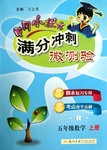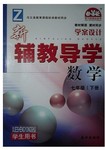题目内容
New research shows that overweight or even mildly obese people have a lower risk of early death than people considered to be normal weight.
Researchers examined the results of 97 studies. Most of the studies were less than 10 years old. They included almost three million adults from around the world, including the United States, Canada, China, Taiwan, Brazil, India and Mexico.
The researchers at the National Center for Health Statistics found that people who are considered overweight or slightly obese were five to six percent less likely to die from all causes than people of normal weight. People with higher obesity ratings, however, had almost a 30 percent greater risk of death compared to normal-weight individuals.
Katherine Flegal was the lead author of the study. She says she was not surprised that overweight people would not have a higher risk of death.
“Because we’d actually already read a lot of this literature and realized it was likely that mortality rates (死亡率) for overweight would be at least not higher than normal weight. I guess I was a little bit surprised that it was definitely lower. And I was also surprised that the lower rates of obesity also didn’t seem to differ from normal weight.”
But she says the difference in death rates appears to be small between normal-weight people and those who are overweight or mildly obese.
The study has raised new questions about “body mass index,”(体重指数) or BMI. This is a measurement of body fat as a ratio(比率) of height to weight. In recent years, many public health experts have promoted body mass index as a way to predict the risk of health problems. Bu t a person's BMI can be misleading in some cases.
Steven Heymsfield ,the executive director of the Pennington Biomedical Research Center, says people can be physically fit and in good health, but might weigh more because they are more muscular.
Still, Dr. Heymsfield says people should not think gaining extra weight is OK just because of the new findings. He says being at a healthy weight lowers the risk for heart disease and diabetes(糖尿病).
1.According to the new findings, the researchers found that __________ .
A.People with high obesity have a lower risk of early death than people with low obesity
B.People with overweight have a greater risk of early death than people of normal weight.
C.People with mild obesity are less likely to die than people of normal weight.
D.People with obesity live much longer than people of normal weight.
2.What does the underlined word “literature” in paragraph 6 mean ?
A.works like novels and poems
B.books and articles on a particular subject
C.printed material
D.magazines and newspapers
3.Which of the following statements is not true according to the passage?
A. BMI is commonly used to measure body fat as a ratio of height to weight.
B. Not all people with a little higher BMI are fat .
C. Many public health experts encourage more people to use BMI as a way to predict the risk of health problem
D. Because of the ne w findings, people should think about gaining extra weight.
1.C
2.B
3.D
【解析】
试题分析:一项新的研究表明,体重超标甚至是轻微肥胖的人比被认为体重正常的人早死的几率要小。研究人员还提出了新的“体重指数”,但是同时也指出不能仅靠“体重指数”来衡量一个人是否健康,也不能因为体重稍微重的人早死几率低就去增肥。
1.C细节理解题。从文章开头New research shows that overweight or even mildly obese people have a lower risk of early death than people considered to be normal weight.可知C项正确。
2.B词意猜测题,前句讲“人们实际上已经读过很多这样的。。”。而文章内容是讲述的是一份调查研究的内容,由此可以推断literature词意应该和research或study等有关。所以B选项正确。
3.D细节理解题。从文章最后一段Dr. Heymsfield says people should not think gaining extra weight is OK just because of the new findings.可知D选项内容错误。
考点:考查社会科学类短文阅读。

 小天才课时作业系列答案
小天才课时作业系列答案 一课四练系列答案
一课四练系列答案 黄冈小状元满分冲刺微测验系列答案
黄冈小状元满分冲刺微测验系列答案 新辅教导学系列答案
新辅教导学系列答案 阳光同学一线名师全优好卷系列答案
阳光同学一线名师全优好卷系列答案